The Tug of War – Ethical vs. Economic Decisions
Are your Eco Decisions for You or for Others?

This is the first in a series of articles on connections between the environment and our personal life choices. As a twenty- five-year macrobiotic, my mind and heart are fused in belief. I will examine eco-lifestyles, the green washing phenom, the paper plate or dishwater dilemma, and the new evolution of triple bottom line for corporations. As the words “green / socially responsible / vegetarian” disappear and become redundant to “life”, change will have charted the right course.
Eco/Health/Animal rights are just a few of the dialects and lifestyles people choose. You never know when you are sitting next to “one of those” crazy left wing, sign carrying hippie beatniks of lore. NOT. That crazy may just become you. Or President Clinton in his recent disclosure on repairing his health.
_____________________________________________________________________________
I’ve spent a lot of time recently thinking about “eco-pieties,” the perceived “wisdoms” accumulated by people who want to make the world better, but don’t want to think too hard or put themselves out too much while doing it.
There’s a constant push-pull between what is environmentally “best” and what is economically sensible. Sometimes, I’ve found, the “best” environmental solution isn’t as obvious as some might think, or isn’t best in all situations. On top of all that, money does matter for lots of folks, and affects the decisions they can, or want, to make. What decisions are hard-coded in your life? Ought there be at least one?
I am forever sick of sensationalist media outlets and brands touting propaganda and subsidy driven marketplaces intended to change our perception of healthy choice in food, drink and practice. Where’s the beef Clara? Everyone knows dairy kills.
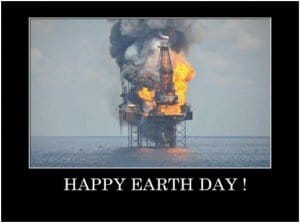
So, how to make the world better, and do it in a reasonable way? To start, you should gather information, real and scientifically defensible information, so you have a better idea what you should do given your personal circumstances. It’s a lot like what my company does for its clients for data centers, gathering hard data about the market they’re interested in, so they can make rational decisions based on evidence, not emotion and hearsay. But too often, people don’t do the homework. They want the easy answer, not the right one.
“Unless someone like you cares a whole awful lot, nothing is going to get better. It’s not”. – Dr. Seuss
In thinking about all this, I talked with smart guys like Cyrus Pirasteh, a former Goldman Sachs trader turned eco-vegan activist and tech entrepreneur. When I asked Cyrus how we might fix the planet, his response was simple: Don’t eat meat. Everything else is, so to speak, small potatoes.
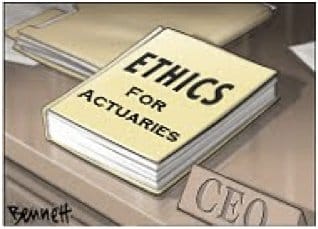
The answer wasn’t quite what I expected, but Cyrus has a point (and a musical way of telling his side). Cutting meat out of your diet has a huge impact on the health of the planet, your body and even your wallet (especially if you avoid highly processed non-meat substitutes).
The Tug of War – Ethical vs. Economic Decisions
I’ve been living a macrobiotic diet for decades now, though I’m no pure vegan (I have a bit of fish on occasion, yet no dairy or eggs forever). But that decision has kept me healthy and high energy while I do the million things stuffed onto my daily calendar. My next post discusses my path to macrobiotics, so stay tuned.
“If a group of beings from another planet were to land on Earth — beings who considered themselves as superior to you as you feel yourself to be to other animals — would you concede them the rights over you that you assume over other animals?”
– George Bernard Shaw
Moreover, cutting out or reducing your meat intake, especially of beef, can have massive practical impacts. One analysis, based on a 2000 report by Stockholm University and the Swiss Federal Institute of Technology, estimated the energy, water and other components of growing, feeding, slaughtering and freezing beef.
Combine those energy requirements (a somewhat impenetrable number ranging between 7 and 20 mega joules) and the impacts of cattle- (and sheep-) produced methane, and the analysis suggests that beef consumption generates roughly the equivalent carbon footprint of 6.5 million to 19.6 million Hummer SUVs.
The United Nations’ Food & Agriculture Organization estimated that beef production accounts for a whopping 18 percent of all greenhouse gases each year. The cost of growing, preparing, transporting and eating vegetable equivalents generates a fraction of 1 percent. At a wine bloggers fest, I was sat next to the sponsor, Tyson Foods, currently touting their RealBeef campaign, got quite a mouthful from me.
“Non-violence leads to the highest ethics, which is the goal of all evolution. Until we stop harming all other living beings, we are still savages.”
– Thomas Edison
Not surprisingly, the beef industry has vigorously contested the figures. American Cattleman magazine, for instance, says the industry has moved to more efficiently feed and process animals, reducing their greenhouse impacts. The argument is fine as far as it goes, but dodges the bigger issue: if you eat less beef, there will be fewer impacts on the planet, period.

In the Amazon River Basin, Brazilian ranchers have been practicing slash-and-burn agriculture to create grasslands, mostly for cattle ranching, because the resulting nutrient-poor soils can’t sustain farming for more than a year or two. On top of everything else, whacking the rain forest further shrinks the world’s single largest carbon absorber just when it might come in handy.
In the American West, ranchers have long enjoyed access to federal lands at subsidized prices for grazing rights, water and more. To protect their herds, they’ve wiped out most native predators while radically changing fragile ecospheres.
It goes on and on. Care to guess one of the biggest sources of climate-change gases? Yep, it’s methane, from the wrong end of ruminants like cattle.
Every time you buy a burger, you’re making your preferences known, in ways that affect both your own health and that of the planet around you, says Shaun Monson, creator of the influential vegan documentary “Earthlings.”
“Is this a we decision or is this a me decision,” quipping Mohammad Ali, asks Shaun Monson . “When it’s really we, it’s both eco and vegan. There’s no separation. When you’re spending a dollar, you’re casting a vote.“
“The reason I’m a vegan is not because I love animals, but because I really hate plants.” – Moby
Thomas Friedman, the New York Times columnist and author of such books as “Hot, Flat and Crowded,” has written regularly and passionately about the need for an aggressive new U.S. policy fostering green technologies and reducing our need for energy- and water-hungry industries. At a networking event with Thomas at a friends home, he threatens that policy mandated price targets are the only answer to change, which saddens me that out lives are in policy makers hands.
If we don’t do it, he argues, the Chinese will, and we’ll miss a chance to both revive our economy and be on the leading edge of the next tech revolution. So I asked him about whether a new food policy could be good tech/green policy?
“A herd of cattle belching can be worse than a highway full of Hummers,” Friedman says in the book. He quotes a 2002 Science World report that methane (from cow belching and other sources) has 21 times the heat-trapping power of carbon dioxide.
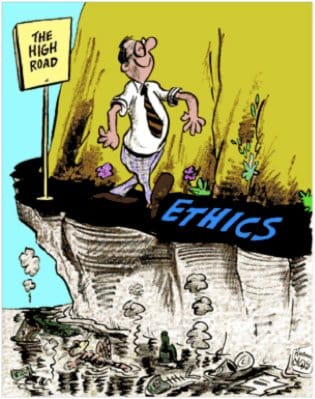
With an estimated 1.3 billion cattle worldwide, that’s a lot of trapped heat. Cutting beef consumption even 10 percent could have a massive impact.
“I don’t care how much you know, until I know how much you care.”
– Anonymous
And just because food is vegetarian, doesn’t mean it won’t taste good. I particularly love the wonderful and wildly varied vegetarian Indian cuisines that have been developed there over the past 5,000 years. Last night, a party of 1000 for Sea Sheppard, introduced by Nonprofit Consultant Debra Bassett, vegan was the fare.
Los Angeles has a huge number of these restaurants, especially in areas such as the stretch of Venice Boulevard between the 10 and 405 freeways (I think they’re clustering there because of nearby Hare Krishna and Muslim houses of worship). Review a list of the best vegetarian eateries in the country. Best of all, its often cheap, or can be, easing the eternal conflict of environmental purity and economic sanity.
So, if you really want to make the planet a greener, healthier place, and make yourself healthier too, take a page from the Catholic calendar and try out a meatless Friday. Or even a meatless Monday, Tuesday, Wednesday, Saturday and Sunday.
At the end of my day, it’s about trust, finding your own beauty and making the right choices and living with them forever.
What do you think? Are there any ways, big or little, that you’re trying to live a more green existence? Do they really pencil out? Have you heard of some that don’t?
Post any links or ideas you have and we’ll try to pull together the best stuff.






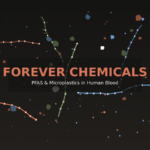

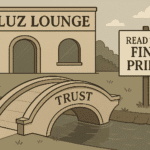

Interesting read… you very well may be contributing to “evolution” with content like this. Thereby proving by wife Jennifer’s theory. She poses that Social Media may induce the next stage in man’s evolution… You can read her at http://bit.ly/9zUh3T (won’t be offended if you take the link down, but wanted your opionio). I look forward to reading more. All the best, Tony
i was at the grocery store the other day. didnt have asian pears…needed it for a recipe i was making.
i ask the stocking clerk, where’s the pears?
he replied, “we dont have any…they are out of season…”
i was furious…how dare this magical fruit be “out of season…” what the hell does that mean anyways!!!
…being 41, a spark stirred in the deep crevice of my mind…there was a time, when i was very young, when fruits and vegetables actually had “seasons”…vaguely remember watermelon in the summer…apples in the fall…
my old scoutmaster had an apple tree, and on that apple tree he had personally grafted 3-4 varieties of apples…i still think that is so cool
so upon reflection and realization, i understood who was “right” and who was “wrong” with my reaction to the clerk telling me “fuji pears are out of season…”
there is a natural order of things…i gained some wisdom that day.
partly, the lesson learned was a reminder that nature has her own schedule…and that we humans have done an exceptional job ‘using’ her various resources to create a fantasy land of uber convenience where fruits and veggies have no season b/c there’s always somewhere on the planet it IS in season…
…but also, and i guess the ultimate irony to all of this…was…to…
go to korea town…
asian pears are always in season there!!!